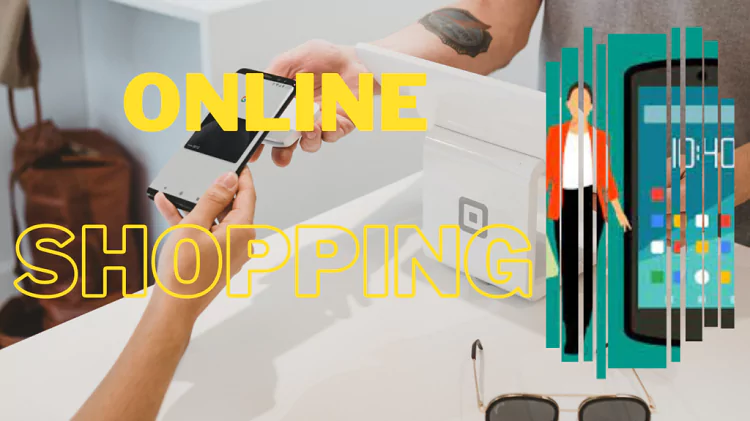Online shopping has become an integral part of our lives. It offers convenience and options. But, concerns about privacy, security, and access to restricted content have also increased. Many users have turned to proxies as a valuable tool to address these concerns. It has revolutionized the way we shop. With a few clicks, we can browse and buy products from around the world, all from the comfort of our homes.

Benefits of Using Proxy When Online Shopping
- Protecting your privacy and security: When you shop online, you share sensitive information such as your credit card details and personal data. By using a proxy you can add an extra layer of privacy and security to your online activities. Proxies help shield your real IP address from prying eyes;
- Accessing geo-restricted content: Some online stores and platforms may restrict access to their services based on your geographical location. Certain products or exclusive deals may only be available in specific countries. By using a proxy, you can bypass these restrictions and access geo-restricted content, allowing you to shop as if you were browsing from a different location;
- Avoiding price discrimination: Online retailers use dynamic pricing strategies, which means they may display different prices for the same product based on factors such as your location, browsing history, or device
Setting Up and Using a Proxy When Shopping Online
Installing a Proxy Extension or Software
You’ll need to install a proxy extension or software compatible with your browser or device. There are many options available, like browser extensions or standalone proxy software. Choose the one that suits your needs and follow the installation instructions provided by the proxy provider;
Configuring Proxy Settings
Once the proxy extension or software is installed, you’ll need to configure the proxy settings. This involves entering the proxy server’s IP address and port number provided. Follow the instructions provided to ensure the correct configuration;
Testing the Proxy Connection
After configuring the proxy settings, it’s crucial to test the proxy connection to ensure it’s working. Visit a website that can detect your IP address and location, and verify that the displayed information matches the proxy’s location. If everything is set up, you’re ready to start shopping online with the added security and privacy of a proxy.

Best Practices for Using Proxies When Shopping Online
Using proxies can enhance your online shopping experience by providing privacy, security, and access to restricted content. To make the most of your proxy usage, it’s important to follow these best practices:
Use Reputable Proxy Providers
When choosing a proxy provider, opt for well-known and trusted companies with a solid reputation. Look for providers that have positive user reviews. Reputable providers offer reliable connections and are focused on user security. Japan Web Proxy is a dedicated web proxy service specifically designed for accessing websites in Japan. It allows you to bypass regional restrictions and access Japanese websites from anywhere.
Avoid Suspicious Websites and Transactions
Even with the added protection of a proxy, it’s crucial to exercise caution when engaging in online shopping. Stick to reputable and trusted online stores to cut the risk of fraud, counterfeit products, or compromised payment details. Avoid clicking on suspicious links or ads that may lead to phishing websites.
Update and Maintain Your Proxy Setup
To ensure optimal performance, keep your proxy software or extension up to date. Proxy providers release updates that include security patches and performance enhancements. By staying updated, you can enjoy the latest features and improvements in proxy technology. Review your proxy provider’s settings and ensure they align with your shopping requirements. Check if your proxy supports the desired locations or IP rotation options that best suit your needs.
Test Your Proxy Connection
Testing your proxy connection to verify that everything is functioning is essential. Visit a website that can detect your IP address and location, and ensure that the displayed information matches the proxy’s location. This step confirms that your proxy is set up and functioning as intended.
Be Mindful of Proxy Limitations
It’s important to be aware of their limitations. Proxies can affect internet speed due to the routing and encryption processes involved. If you experience significant slowdowns, consider choosing a proxy provider that offers optimized infrastructure and high-speed connections.
How Can I Test the Anonymity of a Proxy?
Testing the anonymity of a proxy is crucial to protect online activities. Here are some methods you can use:
IP Address Verification
Test the anonymity of a proxy by verifying your IP address. Start by noting down your original IP address proxy. Once connected, visit a reliable IP address verification website or use online tools designed for this purpose. These tools will display the IP address and location associated with your connection. If the IP address and location match the proxy server’s details instead of your original ones, it indicates that the proxy is masking your identity;
Geolocation Checks
Performing geolocation checks can provide further insight into the anonymity of a proxy. There are online services that allow you to input an IP address and retrieve information about its location, such as the city, country, and even the internet service provider (ISP) associated with that IP address. After connecting to a proxy, use one of these geolocation services to check the location associated with the proxy’s IP address.
DNS Leak Tests
DNS (Domain Name System) leak tests help determine if your DNS requests are being routed through the proxy as intended. DNS leaks can occur when your DNS requests bypass the proxy and are sent to your ISP. To perform a DNS leak test, there are online tools available that simulate DNS queries and check if they are routed through the proxy. Confirm that your DNS requests channel through the proxy. It indicates that the proxy is maintaining your anonymity.
Browser Fingerprinting Tests
Browser fingerprinting is a technique used to collect information about your device and browser configuration. Conducting browser fingerprinting tests can help assess the effectiveness of a proxy and browser characteristics. There are online platforms and browser extensions that provide browser fingerprinting tests. These tests analyze parameters, like browser version, installed plugins, and system fonts. Before and after connecting to a proxy, run these tests and compare the fingerprints. If the fingerprints differ, it suggests that the proxy is altering your browser fingerprint and preserving your anonymity. Remember that regular testing is important as proxy configurations or effectiveness may change over time.
Conclusion
In an era where online shopping is prevalent, protecting your privacy, accessing geo-restricted content, and avoiding price discrimination have become significant concerns. Utilizing proxies when shopping online can address these concerns and provide added security.
Remember that proxies can help protect your privacy and security. Maintain a proactive approach to your online security by using strong, unique passwords, enabling two-factor authentication when available, and keeping your devices and antivirus software up to date.
Now is the time to take control of your online shopping journey. Get access to a reliable and secure proxy service and experience the benefits of enhanced privacy, security, and access to global online marketplaces. Start shopping with confidence and explore a world of possibilities!
